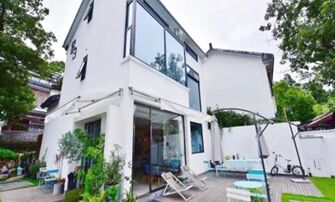Airbnb被爆房东偷拍房客
|
Airbnb's rules allow cameras outdoors and in living rooms and common areas, but never in bathrooms or anywhere guests plan to sleep, including rooms with foldout beds. Starting in early 2018, Airbnb added another layer of disclosure: If hosts indicate they have cameras anywhere on their property, guests receive a pop-up informing them where the cameras are located and where they are aimed. To book the property, the guests must click “agree,” indicating that they're aware of the cameras and consent to being filmed.
Of course, hosts have plenty of reason to train cameras on the homes they rent out to strangers. They can catch guests who attempt to steal, or who trash the place, or who initially say they're traveling alone, then show up to a property with five people. A representative for Airbnb's Trust & Safety communications department told me the company tries to filter out hosts who may attempt to surveil guests by matching them against sex-offender and felony databases. The home-rental start-up says it's cracking down on hosts who record guests. But is it doing enough? In a statement, an Airbnb representative said, “The safety of our community—both online and offline—is our priority, which is why we take reports of privacy violations very seriously and employ sophisticated technologies to help prevent bad actors from using our platform in the first place.” But four guests who found cameras in their rentals told The Atlantic the company has inconsistently applied its own rules when investigating their claims, providing them with incorrect information and making recommendations that they say risked putting them in harm's way. |









